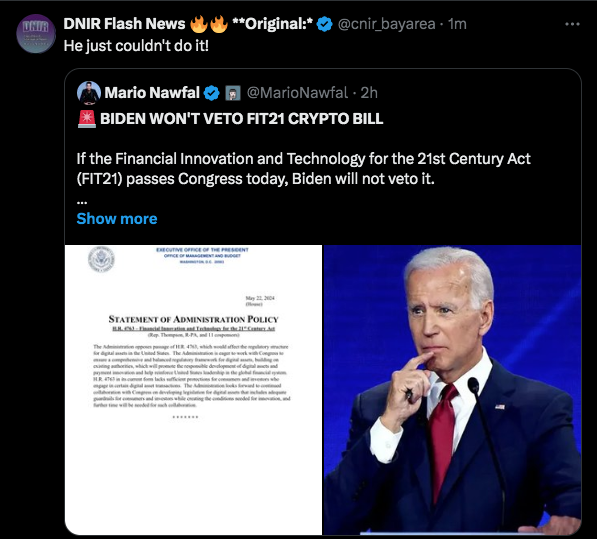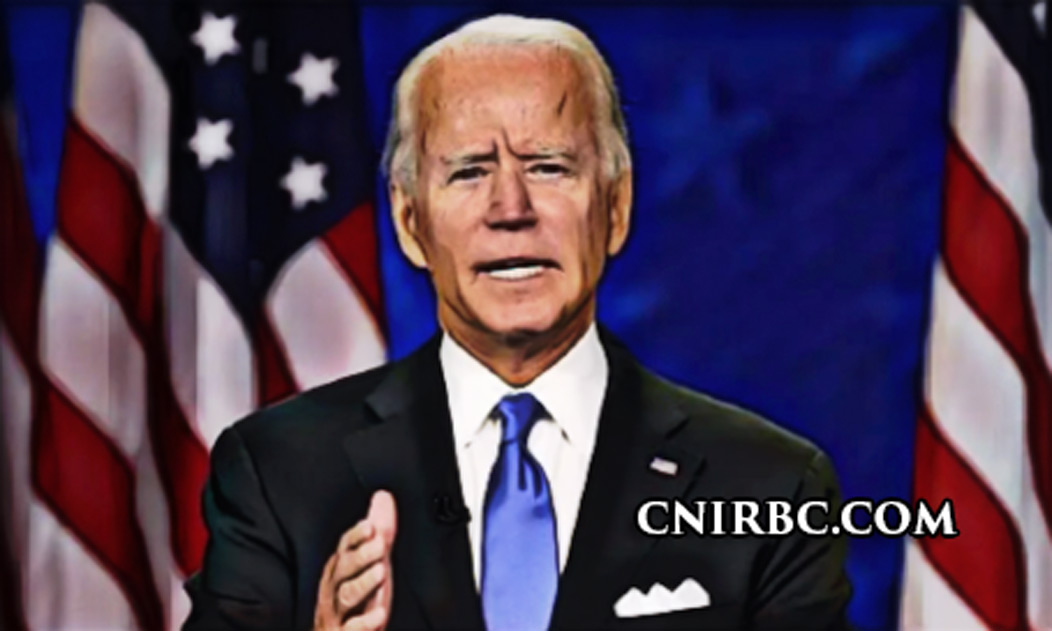In a significant development for the crypto sector, the Biden administration has announced that it will not veto the Financial Innovation and Technology for the 21st Century Act (H.R. 4763), a major legislative proposal aimed at regulating the digital asset market. Despite its opposition to the bill, the administration expressed a willingness to collaborate with Congress to ensure robust consumer and investor protections.
The White House’s statement marks a departure from President Biden’s previous threat to veto the bill, reflecting a shift in stance as political dynamics surrounding cryptocurrency intensify. The administration underscored its eagerness to work towards a comprehensive regulatory framework, enhancing existing authorities to govern digital assets effectively.
Key Points of the Financial Innovation and Technology Act (H.R. 4763)
The proposed legislation, known as FIT21, mandates the Commodity Futures Trading Commission (CFTC) and the Securities and Exchange Commission (SEC) to develop a structured regulatory framework for digital assets. This framework aims to provide clarity on the classification and oversight of digital commodities and securities, potentially redefining compliance obligations under federal law.
https://x.com/cnir_bayarea/status/1793328549996515821

Political Dynamics Influencing Crypto Legislation
This policy shift comes in the wake of bipartisan support in Congress. Last week, 11 Democrats joined Republicans in advancing the bill through the Senate, defying opposition from figures like Senator Elizabeth Warren. The increasing political clout of the crypto sector is evident, with Republican Presidential nominee Donald Trump recently announcing his campaign would accept crypto donations and pledge support for the industry.
SEC’s Concerns and Industry Reactions
SEC Chair Gary Gensler voiced concerns that the legislation could undermine the regulator’s ability to oversee traditional and crypto markets, potentially weakening enforcement of disclosure and compliance requirements for securities issuers. However, proponents of the bill argue that current U.S. law stifles crypto innovation by subjecting companies to constant litigation threats.
As the House of Representatives prepares to vote on FIT21 later today, the outcome could significantly influence the regulatory landscape for digital assets, marking a pivotal moment for the industry.



